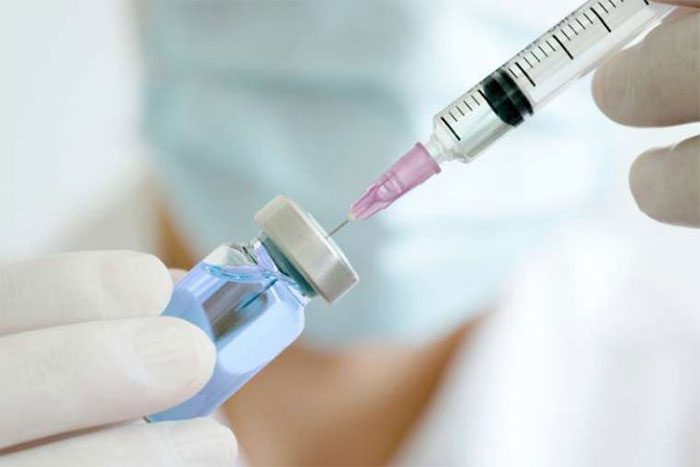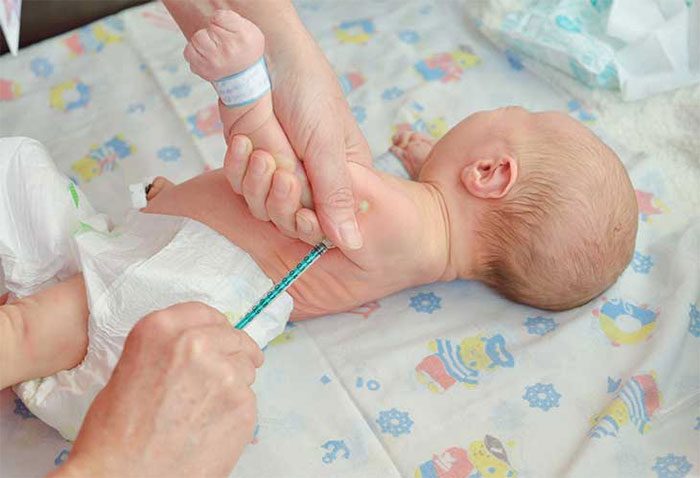Vaccination against Hepatitis B is essential for protecting oneself and loved ones from the risk of infection and the development of severe liver diseases such as cirrhosis, liver failure, and liver cancer due to Hepatitis B.
The Importance of Hepatitis B Vaccination
You cannot get Hepatitis B from the vaccine. All Hepatitis B vaccines in use since 1986 have not caused any cases of Hepatitis B infection.
If you are infected with the Hepatitis B virus (HBsAg positive) or have recovered from a previous Hepatitis B infection, receiving the Hepatitis B vaccine will be ineffective.
However, those living around vaccinated patients will be protected for life.
Testing is the only way to know if someone has been infected or has recovered from the infection to help prevent the spread of the virus to those around them.
Regular Vaccination for Lifelong Protection
Since everyone is at risk, all adults should seriously consider getting vaccinated against Hepatitis B to ensure lifelong protection against liver disease. Experts recommend that everyone should complete their Hepatitis B vaccination schedule to protect themselves and their loved ones against Hepatitis B for life.
The Hepatitis B vaccine is a safe and effective vaccine recommended for all newborns and children up to 18 years of age. The vaccine is also recommended for adults who have diabetes and those at high risk of infection due to their occupation, lifestyle, living conditions, or country of origin.
Preventing Cirrhosis, Liver Failure, and Liver Cancer
Individuals with chronic Hepatitis B may progress to severe liver diseases such as cirrhosis, liver failure, and liver cancer. Preventing Hepatitis B infection is crucial in preventing the pathway to liver diseases.
The Hepatitis B vaccine is also known as the first cancer prevention vaccine because it prevents Hepatitis B, the leading cause of liver cancer worldwide.

Vaccination against Hepatitis B is the most effective prevention method available today.
Vaccination Recommendations for Hepatitis B
The Hepatitis B vaccine is recommended for all newborns and children under 18 years of age by the World Health Organization (WHO) and the Centers for Disease Control and Prevention (CDC) in the United States. The CDC also recommends vaccination for adults in high-risk groups.
Everyone can be at risk of Hepatitis B infection throughout their lives, so vaccination against Hepatitis B is necessary for everyone. However, there are specific groups that the CDC recommends for Hepatitis B vaccination:
- All newborns;
- All children under 19 years of age who have not been vaccinated;
- Sexual partners at risk of Hepatitis B;
- Individuals undergoing treatment for a sexually transmitted infection;
- Men who have sex with men should also be vaccinated;
- Injecting drug users;
- People living with, or closely related to individuals infected or at high risk of infection;
- Healthcare workers at risk of blood exposure;
- Individuals with end-stage kidney disease including those on dialysis, peritoneal dialysis, and home dialysis;
- Residents and travelers to countries with high rates of Hepatitis B, such as: Asia, Africa, South America, the Pacific Islands, Eastern Europe, and the Middle East;
- Individuals with chronic liver disease other than Hepatitis B, such as: cirrhosis, fatty liver disease, etc.;
- Individuals with Hepatitis C;
- Individuals with HIV;
- Adults with diabetes aged 19 to 59;
- Other individuals at risk…
Hepatitis B Vaccination Schedule
Three-Dose Schedule for Children
- First dose: At any time, but newborns should be vaccinated within 12 hours of birth.
- Second dose: At least one month after the first dose.
- Third dose: At least 2 months after the first dose (and at least 1 month after the second dose). Newborns should be at least 24 weeks old at the time of the third dose.
- Fourth booster dose at least 1 year after the third dose.
Alternative Two-Dose Schedule:
- First dose: Initial vaccination
- Second dose: At least one month after the first dose
- Third dose: At least six months after the second dose
- Fourth dose: At least 5 years after the third dose
Additionally, the second and third Hepatitis B doses can also be administered in combination with the 6-in-1 vaccine.
Each dose can be started at any time as long as the recommended spacing is maintained.
Blood tests may be conducted after vaccination to check antibody levels and determine if vaccination was successful.
Two-Dose Schedule for Adults
Heplisav-B (Dynavax) is an FDA-approved two-dose vaccine for adults aged 18 and older. The vaccine is administered as two doses separated by one month.
Adults should be tested before vaccination to check whether they have previously been infected with the Hepatitis B virus.

Vaccination against Hepatitis B should follow guidelines and vaccination schedules.
Side Effects of Hepatitis B Vaccination
Over 1 billion doses of the Hepatitis B vaccine have been administered worldwide, and it is considered one of the safest and most effective vaccines ever developed.
Numerous studies on the safety of the vaccine have been conducted by the World Health Organization, the Centers for Disease Control and Prevention, and various medical societies. The results show no evidence that the Hepatitis B vaccine causes sudden infant death syndrome (SIDS), autism, multiple sclerosis, or other neurological disorders.
Common side effects from the Hepatitis B vaccine may include pain, swelling, and redness at the injection site. The vaccine may not be recommended for individuals with yeast allergies or a history of adverse reactions to vaccines.
Where to Get Vaccinated for Hepatitis B?
In Vietnam, individuals can seek and receive the vaccine at:
- Local health stations as part of the national expanded vaccination program;
- Preventive health centers;
- Central Institute of Hygiene and Epidemiology;
- Public and private hospitals authorized by the Ministry of Health, such as Hong Ngoc General Hospital.
**Note: The information provided in this article is for reference only and does not replace medical diagnosis or treatment. Patients should not self-medicate. To accurately determine their medical condition, patients should visit hospitals for a direct examination by a doctor, diagnosis, and advice on appropriate treatment plans as well as effective medication prescriptions.



















































